I went to the House Clerk’s office yesterday. I go often. More on HB 932 here.


looking for a better life • news and pro-enforcement opinion
By D.A. King
I went to the House Clerk’s office yesterday. I go often. More on HB 932 here.


By D.A. King
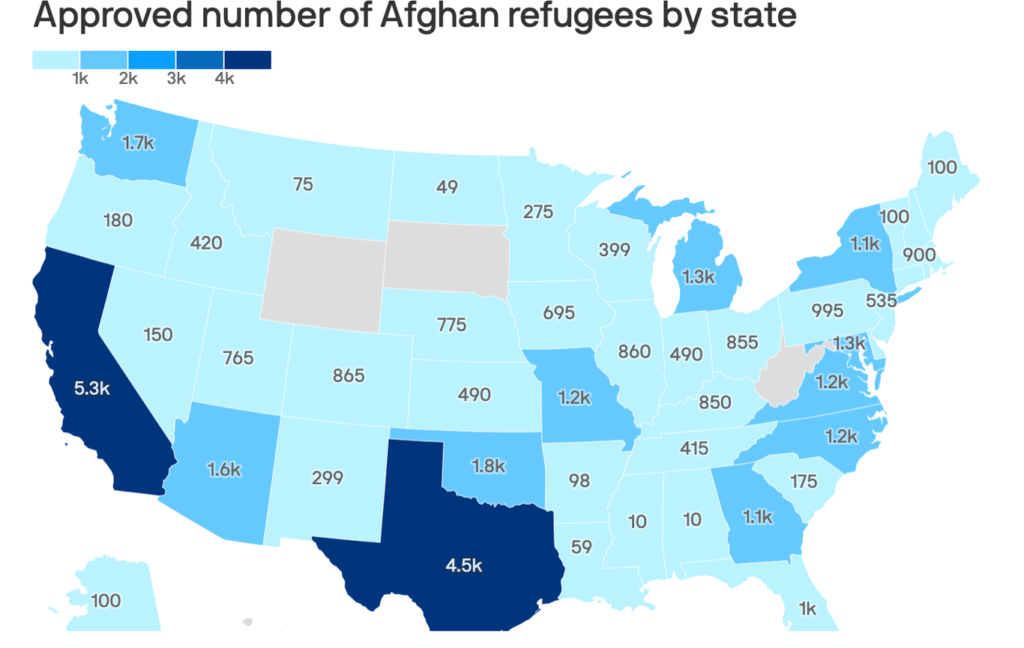
The below from an email forwarded here from a concerned reader who follows a leftist, open borders agency here called Coalition of Refugee Service Industries (CRSA).
The immediate take-away is that the newly arrived refugees and SIV holders would be put ahead of Americans and legal immigrants who live in other states in the line for lower tuition rates. If the goal is for increased levels of Dem-voting refugees in Georgia, this is a good way to get there.
For academic year 2020-2021, the average tuition & fees for colleges in Georgia was $4,739 for instate and $17,008 for out-of-state according to experts at collegetuition.com.
–> Update, Jan 25, 2022 12:30 PM: I learned from a friend and Jones’ constituent and confirmed at the House Clerk’s office yesterday that House Speaker Pro Tem Jan Jones scratched her name off of HB932 on Jan 19 – five days after we started the information campaign. Photos of records obtained at House Clerk’s office here.

Related: The inside story on immigration related legislation under the Gold Dome here.

______________________
Original email: Rep. Wes Cantrell to Sponsor Instant Access To In-State Tuition Bill for Georgia Refugees and SIV Holders

Rep. Wes Cantrell (R-Woodstock), a supporter of CRSA and chair of the House Study Committee on Global Talent, will be sponsoring a bill to extend in-state tuition benefits to Georgia refugees immediately upon their resettlement in the state. The bill would also apply to special immigrant visa (SIV) holders who supported the U.S. military overseas and Afghan allies evacuated after the Taliban takeover and granted humanitarian parole by the U.S.
Under current law, these individuals must wait one-year to establish residency to access in-state tuition.
———
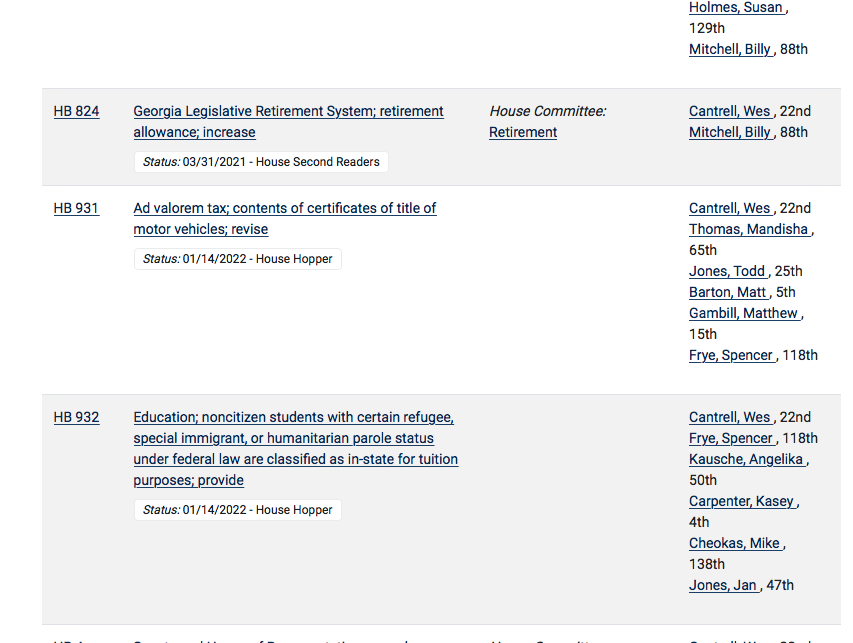
By D.A. King

In the closing days of the 2023 push for “school choice” in Georgia, Martha Zoller had Rep Todd Jones on her show yesterday (here). He is carrying this year’s school choice bill in the House. I listened in for the first time in awhile.

We were happy (surprised) to hear Rep Jones finally mention illegal aliens as related to the “educational freedom”, “put parents in charge,” “Promise Scholarship” topic. We were disappointed that he didn’t mention that in the current version of SB 233 there is no language that excludes illegal alien parents from the state benefit process or serving on an oversight committee.
There seemed to be some confusion on Martha’s part about what informed, pro-enforcement watchers were saying about illegal aliens as related to being eligible students.
Audio and transcript on the bottom.
Martha found time later in her show to mention me and suggest that I arrange an interview on her show. We were not aware of that possibility. The usual process of radio show hosts having guests on for interviews is that the host invites the guest. But it seems that Martha has some resentment towards me for not memory-holing Gov Brian Kemp’s defiant betrayal on his 2018 campaign promises regarding “criminal illegals,” the promised public registry of criminal illegals, the “Brian Kemp Track and Deport plan” and his pledge on ending “sanctuary cities.”
We now have sanctuary counties in Georgia.
Martha now says Kemp has done a lot on illegal immigration in Georgia, just different things than he said he would do – while continuing to try to divert listener’s attention to “the border.” During the last campaign Martha explained that Kemp had not done what he promised because things had changed at the border (even more illegal aliens crossing). We’ll get to all that and more after the legislative session is over.
Meantime, I am happy to be on Martha’s show anytime she wants me on. I wonder if I should regard it as a hostile interview.
Audio (five-ish minutes) & partial transcript
Rep Todd Jones:
“… my swearing in in January of 2017.
Martha Zoller:
And then tell us about Senate Bill 233.
Rep Todd Jones:
Sure. So, Senate Bill 233, uh, effectively the- the Georgia Scholarship Promise Act, is what many are calling a voucher, but to me it’s an opportunity to provide families who are right now districted to a bottom 25% school within the state of Georgia, to provide them with an alternative, provide them with an opportunity. Frankly, to provide them hope.
Martha:
Now, you are getting some pushback from a lot of areas, okay, but one of them is in some of the anti illegal immigration groups, are, and, uh, many of them are Republicans, are- are pushing back saying that this is gonna open the door to illegal immigrants, uh, in education. Now I would argue that we already are required by the, by the Supreme Court to educate all children that are in our country regardless of their immigration status, but is there any foundation or any accuracy to some of the claims being made there?
Rep Todd Jones:
Yeah. So, when we were forming 233 with Senator Greg Dolezal, he’s the primary author of this, uh, on the Senate side. I’m honored to be carrying it on the House side. There was a series of things that we wanted to be able to do to make it clear, uh, what parents would be, uh, allowed to be able to take advantage of this voucher or the students, what a school would have to do. If it was a private school, what would have to occur for a homeschooling student, a hybrid school, et cetera. What would be accountability standards? What were the financial standards? And all the transparency that goes along with it. We wanted to make it the strongest school choice bill in the entire country in terms of, I’ll say, accountability.
Uh, in terms of this question around I’ll say illegal, uh, immigrants receiving the voucher, I can say this. To your point, the Supreme Court’s been very clear in terms of being able or having to educate students within the public school system, but we added in to 233 not only are you an existing public school student, but you also are eligible for HOPE. And HOPE, as you know, is effectively our opportunity to provide kids a pathway into the university system and be able to cover anywhere between 90% to 100% of their cost.
That does not provide for the funding of anyone who is here illegally. So ultimately, putting the guardrails around not just are they in the public school system, but also eligible for HOPE puts the guardrail in in terms of who can and who can’t. But the other thing I like to mention is, is that the voucher itself is not fungible cash. It’s not just cash that’s deposited into the parents’, um, I’ll say bank account, but rather it is a third party administered account that can only be released based on approved or pre-approved expenses that the commission has already reviewed and has indicated that those are expenses that are appropriate to be paid for by the account.
Martha:
You know, since about the 1850s or ’60s in New Hampshire and Vermont, there has been a system called Town Tuition. Uh, it is a system where basically the money follows the child. And it became about because there were a lot of small towns in New Hampshire and Vermont where maybe they didn’t have enough money to have a middle school and a high school, or whatever. So there’s been this, you can go to … It used to be you can go to parochial schools, you can go to private schools. Up until the 1980s, you could go to parochial schools. And they’ve had this in place for, you know, 150 years.
Um, hav- are you aware of that system? Had you heard about it? Has anybody looked at it if so? Because it seems like we got a model that’s worked for 150 years, and, you know, but nobody seems to know about it.
Rep Todd Jones:
So, I would, A, yes, I am aware of it. B, I also agree with you that no one is aware about it, is- is aware of those programs. But you’re starting to see maybe not exact replicas, but at least I’ll say, a- a- a good overlap, uh, in Arkansas, you’re starting to see, in Florida, in terms of what they voted last Thursday in terms of universal money follows the student. So, these are I’ll say concepts that are starting to sweep across the country, especially in those states that lean red or hard red. And we hope that our, and coming back to 233, we feel as if we have tailored this in such a way, uh, that to your exact point, if the school’s in the bottom 25% of our state, we’re not looking to do anything adverse to that school.
I want to be clear. If a student takes a voucher from one of those school systems, the per capita funding actually goes up, not goes down, and that’s a long formula and a, probably for a longer conversation. But we see this as an and, Martha, not an or. We’re gonna continue to fund public education, totally fund public education and provide those students who are districted to a bottom 25% school to be able to have an opportunity to do something else, because let’s face it, education is the great equalizer.
Martha:
Amen to that, you know. Education and economics is what separates us. Okay.
Rep Todd Jones:
That’s right.
Martha:
And that’s what we need to- to look at. Um, of course, I’ve gotten a number of question when the people heard you were gonna be on. I got some questions that I’ve k- kind of compiled because they were all on the same topic. Um, Florida made some big changes in their education system back during Governor Bush. And- and e- essentially by adding choice-…”
By D.A. King

Voters should talk back to the politicians they send to Atlanta
One of the glaring realities realized after nearly two decades as a reluctant denizen of the Gold Dome is that most voters have little idea about what really goes on there. A pending Democrat bill related to immigration and the cost of higher education with three Republican cosponsors is likely an example.
Senate Bill 264 is sponsored by Stone Mountain Democrat Sen. Kim Jackson. The number two signer on the bill is Republican Sen. Mike Dugan of Carrollton. The other two Republican cosponsors are Senators Billy Hickman (Statesboro) and Dalton’s Chuck Payne.
If passed and signed by Governor Kemp, this bill would remove the requirement now in state law that new Georgia residents must live here for a year before they can access the much lower instate tuition rate in our public colleges and technical schools. Including the Republican cosigners, we urge all concerned to read lines 22 & 23 in the bill as introduced (LC 50 0510).
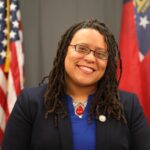
But the proposed change would not apply to Americans.
The Democrat legislation these Republicans have decided to support only applies to foreigners with refugee and “special immigrant” status along with otherwise illegal aliens who the Biden administration moves into the U.S. as recipients of temporary “Humanitarian Parole.” Under SB 264 these lucky folks could legally “migrate” to Georgia from other countries and immediately access instate tuition rates. They would not have a twelve-month residency waiting period as do Americans.
U.S. citizens moving here from other states would still pay the much higher out of state tuition rate for their first year as a new Georgian.It’s easy and accurate to refer to this gem as an “Americans last bill.”
The measure has been assigned to the Senate Higher Education Committee where Hickman is the chairman and saw an initial hearing on March 16, 2023. Along with Sen. Payne, with his question to the sponsor, Chairman Hickman demonstrated that that he did not understand the Democrat, immigration related bill he has cosponsored (transcript here).
How much more tuition would an American pay in our public colleges than foreign nationals?
In Carroll County, where Sen. Dugan lives, the University of West Georgia charges $2,732 (15+ hours) for instate tuition. The out of state rate is $9,641.
According to the Georgia Southern University website, the instate tuition for undergraduates was $2732.00 for fifteen hours in the Fall 2022 semester and $9641.00 for out-of-state rate (it’s the same for Spring, and Summer 2023). Our math tells us that is a difference of $6909.00 per semester.
As per the Dalton State website, for on campus students the estimated tuition and fees per semester is $2,123.00 for instate tuition. It’s $6,334.00 for students being charged the out-of-state rate. That’s a difference of $4211.00 if my American math is correct – per semester.
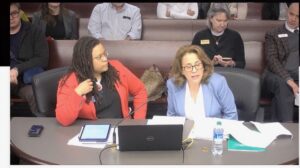
Based on a 9-month academic year for an average undergraduate student, tuition and fees at UGA for instate tuition is $12,080.00 The out-of-state tuition/fee cost is $31,120.00 “based on a 9-month academic year for an average undergraduate student” (UGA website, May 30, 2023).
My guess is that cosponsoring SB 264 wasn’t at the top of any “end of session at the Gold Dome wrap up” presentation at a grassroots GOP meeting for Dugan or the other Republican cosponsors.
Pushed in the state Capitol by the leftist Coalition of Refugee Service Agencies (CRSA), Mark Zuckerburg’s little-known, pro-amnesty ‘FWD.us’ lobbying enterprise and the powerful Georgia Chamber of Commerce, the same bill (then from a Republican) died without a vote last year as HB 932. When this writer made it public during the 2022 legislative session that Speaker Pro Tem Rep Jan Jones (R – Milton) had cosponsored that bill, she went to the Clerk of the House office and scratched her name off the list of cosponsors.
I can sadly tell you that the list of lawmakers who have an “Americans First” mindset on business, benefits, law enforcement and educational matters when it involves immigration is short and shrinking. Voters can and should change that fact by paying attention and talking back to the politicians they elect to serve them.
There is a companion bill in the House, HB 640. Democrat Rep Scott Holcombe (Atlanta) is the lead sponsor, Republican Rep Bill Hitchens (Rincon) is the only cosponsor. Readers may want to ask their House Rep about that gem too as both bills are viable for the 2024 session. It’s an election year.
You can get more information on these bills and follow their progress at ImmigrationPoliticsGA.com.
By D.A. King

“If passed and signed by Governor Kemp, this bill would remove the requirement now in state law that new Georgia residents must live here for a year before they can access the much lower instate tuition rate in our public colleges and technical schools. But the proposed change would not apply to Americans.”
One of the glaring realities realized after nearly two decades as a reluctant denizen of the Gold Dome is that most voters have little idea about what really goes on there. A pending Democrat bill related to immigration and the cost of higher education with three Republican cosponsors is likely an example.
Senate Bill 264 is sponsored by Stone Mountain Democrat Sen. Kim Jackson. The number two signer on the bill is Republican Sen. Mike Dugan of Carrollton. The other two Republican cosponsors are Senators Billy Hickman (Statesboro) and Dalton’s Chuck Payne.

If passed and signed by Governor Kemp, this bill would remove the requirement now in state law that new Georgia residents must live here for a year before they can access the much lower instate tuition rate in our public colleges and technical schools.
But the proposed change would not apply to Americans.
The Democrat legislation these Republicans have decided to support only applies to foreigners with refugee and “special immigrant” status along with otherwise illegal aliens who the Biden administration moves into the U.S. as recipients of temporary “Humanitarian Parole.” Under SB 264 these lucky folks could legally “migrate” to Georgia from other countries and immediately access instate tuition rates. They would not have a twelve-month residency waiting period as do Americans.
U.S. citizens moving here from other states would still pay the much higher out of state tuition rate for their first year as a new Georgian.
The measure has been assigned to the Senate Higher Education Committee where Hickman is the chairman.
It’s easy and accurate to refer to this gem as an “Americans last bill.”
How much more tuition would an American pay in our public colleges than foreign nationals?
According to the Georgia Southern University website, the instate tuition for undergraduates was $2732.00 for fifteen hours in the Fall 2022 semester and $9641.00 for out-of-state rate (it’s the same for Spring, and Summer 2023). Our math tells us that is a difference of $6909.00 per semester.
As per the Dalton State website, for on campus students the estimated tuition and fees per semester is $2,123.00 for instate tuition. It’s $6,334.00 for students being charged the out-of-state rate. That’s a difference of $4211.00 if my American math is correct – per semester.
In Carroll County, where Sen. Dugan lives, the University of West Georgia charges $2,732 (15+ hours) for instate tuition. The out of state rate is $9,641.

Based on a 9-month academic year for an average undergraduate student, tuition and fees at UGA for instate tuition is $12,080.00 The out-of-state tuition/fee cost is $31,120.00 “based on a 9-month academic year for an average undergraduate student” (UGA website, May 30, 2023).
My guess is that cosponsoring SB 264 wasn’t at the top of any “end of session at the Gold Dome wrap up” presentation at a grassroots GOP meeting for Hickman or the other Republican cosponsors.
Pushed in the state Capitol by the leftist Coalition of Refugee Service Agencies (CRSA), Mark Zuckerburg’s little-known, pro-amnesty ‘FWD.us’ lobbying enterprise and the powerful Georgia Chamber of Commerce, the same bill (then from a Republican) died without a vote last year as HB 932. When this writer made it public during the 2022 legislative session that Speaker Pro Tem Rep Jan Jones (R – Milton) had cosponsored that bill, she went to the Clerk of the House office and scratched her name off the list of cosponsors.
I can sadly tell you that the list of lawmakers who have an “Americans First” mindset on business, benefits, law enforcement and educational matters when it involves immigration is short and shrinking. Voters can and should change that fact by paying attention and talking back to the politicians they elect to serve them.
There is a companion bill in the House, HB 640. Democrat Rep Scott Holcombe (Atlanta) is the lead sponsor, Republican Rep Bill Hitchens (Rincon) is the only cosponsor. Readers may want to ask their House Rep about that gem too as both bills are viable for the 2024 session. It’s an election year.
You can get more information on these bills and follow their progress at ImmigrationPoliticsGA.com.
By D.A. King

Voters should talk back to the politicians they send to Atlanta
One of the glaring realities realized after nearly two decades as a reluctant denizen of the Gold Dome is that most voters have little idea about what really goes on there. A pending Democrat bill related to immigration and the cost of higher education with three Republican cosponsors is likely an example.
Senate Bill 264 is sponsored by Stone Mountain Democrat Sen. Kim Jackson. The number two signer on the bill is Republican Sen. Mike Dugan of Carrollton. The other two Republican cosponsors are Senators Billy Hickman (Statesboro) and Dalton’s Chuck Payne.
If passed and signed by Governor Kemp, this bill would remove the requirement now in state law that new Georgia residents must live here for a year before they can access the much lower instate tuition rate in our public colleges and technical schools.
But the proposed change would not apply to Americans.
The Democrat legislation these Republicans have decided to support only applies to foreigners with refugee and “special immigrant” status along with otherwise illegal aliens who the Biden administration moves into the U.S. as recipients of temporary “Humanitarian Parole.” Under SB 264 these lucky folks could legally “migrate” to Georgia from other countries and immediately access instate tuition rates. They would not have a twelve-month residency waiting period as do Americans.
U.S. citizens moving here from other states would still pay the much higher out of state tuition rate for their first year as a new Georgian.
The measure has been assigned to the Senate Higher Education Committee where Payne is a member and Hickman is the chairman.
It’s easy and accurate to refer to this gem as an “Americans last bill.”
How much more tuition would an American pay in our public colleges than foreign nationals? According to the Dalton State website, for on campus students the estimated tuition and fees per semester is $2,123.00 for instate tuition. It’s $6,334.00 for students being charged the out-of-state rate. That’s a difference of $4211.00 if my American math is correct – per semester.
According to the Georgia Southern University website, the instate tuition for undergraduates was $2732.00 for fifteen hours in the Fall 2022 semester and $9641.00 for out-of-state rate (it’s the same for Spring, and Summer 2023). Our math tells us that is a difference of $6909.00 per semester.
In Carroll County, where Sen. Dugan lives, the University of West Georgia charges $2,732 (15+ hours) for instate tuition. The out of state rate is $9,641.

Based on a 9-month academic year for an average undergraduate student, tuition and fees at UGA for instate tuition is $12,080.00 The out-of-state tuition/fee cost is $31,120.00 “based on a 9-month academic year for an average undergraduate student” (UGA website, May 30, 2023).
My guess is that cosponsoring SB 264 wasn’t at the top of any “end of session at the Gold Dome wrap up” presentation at a grassroots GOP meeting for Payne or the other Republican cosponsors.
Pushed in the state Capitol by the leftist Coalition of Refugee Service Agencies (CRSA), Mark Zuckerburg’s little-known, pro-amnesty ‘FWD.us’ lobbying enterprise and the powerful Georgia Chamber of Commerce, the same bill (then from a Republican) died without a vote last year as HB 932. When this writer made it public during the 2022 legislative session that Speaker Pro Tem Rep Jan Jones (R – Milton) had cosponsored that bill, she went to the Clerk of the House office and scratched her name off the list of cosponsors.
I can sadly tell you that the list of lawmakers who have an “Americans First” mindset on business, benefits, law enforcement and educational matters when it involves immigration is short and shrinking. Voters can and should change that fact by paying attention and talking back to the politicians they elect to serve them.
There is a companion bill in the House, HB 640. Democrat Rep Scott Holcombe (Atlanta) is the lead sponsor, Republican Rep Bill Hitchens (Rincon) is the only cosponsor. Readers may want to ask their House Rep about that gem too as both bills are viable for the 2024 session. It’s an election year.
You can get more information on these bills and follow their progress at ImmigrationPoliticsGA.com.
By D.A. King

UPDATE: March 14, 2024. The House passed SB 233 today with no debate on or attention to the below. Several House embers told us they “had to vote for school choice…” despite understanding that it will reward and encourage illegal imigtrati9on into Georgia. By our math, this is exactly three weeks after the murder of Laken Riley, allegedly by an illegal alien who migrated to our state.
Hundreds of thousands of illegal aliens have been Georgia residents for more than a year.
Update: March 31, 2023 11:00 PM: SB 233 failed in the House, a vote to reconsider passed and the has been put back on the General Calendar for next year. See the Breitbart story “Georgia blocks plan to open K-12 grants to illegals.”
Update: March 28, 2023, 10:50 AM: GOP Gov Brian Kemp has publicly endorsed the bill and is now urging the House to pass it. There is still no language excluding illegal alien “parents” from the oversight process.
Update: March 24, 6:22 AM: The House took up this bill yesterday but ended up voting 95-70 (see “House vote 293”) to table the measure – after Gov Kemp sent word through a floor leader that he supports the school choice legislation as is. *Notable that 13 members were excused from voting.
Rep Will Wade offered a plea for passage from the Well before Pro Tem Jan Jones moved to table the illegal alien -friendly measure. Two minute audio from House floor:
__________________________
Most conservative Georgians do not want illegal aliens to be able to apply for any non-fed mandated benefit, direct the destination of state funds, be reimbursed for out-of pocket expenses, or serve on a “Parent Review” committee that determines what expenses are eligible to be considered as a “qualified education expense” under state law.
Despite more than a year of warnings to Republican lawmakers under the Gold Dome, language in the pending “school choice” bill does not require “parents” (who make the application to begin the proposed new state grant process) to be U.S. citizens or have legal immigration status.
(Beginners guide: We think the “Promise Scholarship” should be regarded as a “state grant” and thereby a public benefit under Georgia’s verification of lawful presence law OCGA 50-36-1. We have repeatedly urged all concerned to make that clear (or not) in the bill. If it is a state grant, the applicant (the “parent”) would be required to complete the prescribed verification process to swear to “lawful presence.”)
Below is another line-by-line write up on part of the role of “parents” in the administration of and participation in the proposed new state “Promise Scholarship.”
Modified structure.
See also LC 49 1458S and LC 1458S/hrcs (lines may not exactly match in later versions).
Line #
37 ‘Parent‘ means a biological parent, legal guardian, custodian, or other person with
38 legal authority to act on behalf of a student.
64 (G) Other expenses authorized by the State Board of Education or the commission; or
65 (H) Individual education expenses authorized by a majority of the parent review
66 committee provided for in Code Section 20-2B-6.
72 (a) A student shall qualify for a promise scholarship account under this chapter if:
73 (1) The student’s parent resides within Georgia and has been a Georgia resident for at
74 least one year; provided, however, that the one-year requirement shall not apply if the
75 student’s parent is an active duty military service member stationed in Georgia within the
76 previous year;
201 (3) The commission shall develop a system for parents to direct account funds to
202 participating schools and service providers by electronic funds transfer, automated
203 clearing-house transfer, or another system that the commission finds to be commercially
204 viable, cost-effective, and easy for parents of participating students to use. The
205 commission shall not adopt a system that relies solely on reimbursing parents for
206 out-of-pocket expenses, but may determine certain qualified education expenses that must
207 require reimbursement or preapproval for purchase. The commission is authorized to
208 qualify private financial management firms to manage the payment system.
231 (a) To assist in the determination of whether certain expenses meet the requirements to be
232 considered a qualified education expense under this chapter, a parent review committee
233 shall be established.
234 (b)(1) The committee shall comprise one person with relevant knowledge, skills, and
235 abilities and eight parents of participating students appointed by the president of the
236 commission. Four of the parents shall reside in local school systems with student
237 enrollment greater than 10,000, and four of the parents shall reside in local school
238 systems with student enrollment less than 10,000.
239 (2)(A)Members of the committee shall serve for staggered three-year terms and may
240 be reappointed; provided, however, that no individual shall be permitted to serve more
241 than three terms.
By D.A. King

Rep Bonnie Rich has lost the race in the Republican Primary for the newly redrawn House District 100 seat. Rich, chairwoman of the House Republican Caucus, has represented House District 97 for the last four legislative sessions was beaten by state Rep. David Clark who is the (pre-redistricting) House District 98 representative.
A carefully protected favorite of Speaker David Ralston, Rep Rich is best known to pro-enforcement advocates as the lead opposition to HB 228 sponsored by Cherokee County Rep Charlice Byrd.
HB 228 was a simple, “belt and suspenders” bill that addresses voter ID security and the drivers licenses and ID Cards Georgia issues to foreigners here as immigrants, guest workers, foreign students – and about twenty thousand illegal aliens with DACA protection. These credentials are labeled “LIMITED TERM” and almost exactly the same as the ones commonly issued to U.S. citizens. Not many people, including most legislators, have any clue what “LIMITED TERM” means. Explanation: the valid term of the credential is timed to expire when the holders visa or “green card” runs out or renews.
HB 228 also addressed the startling fact that there is nothing in state law that says these ID documents are excluded from acceptance as “proper identification” for voting purposes.
HB 228 also required the warning “BEARER NOT U.S. CITIZEN – NOT VOTER ID” to be added to the front of the LIMITED TERM credentials. Also, as mail-in vote security, the Department of Driver Services would begin a system in which the first two characters of the drivers license/ID Card numbers be “NC” on the cards issued to non-citizens. We would catch up with Alabama on that one.
Related: Popular “no-brainer” election integrity legislation, HB 228, apparently dead under the Gold Dome

HB 228 died without a 2022 hearing or committee vote. In the process of killing the measure, the members of the House Special Committee on Election Integrity revealed a troubling lack of knowledge on the identity credentials Georgia issues and related immigration basics. Rich criticized the bill with the explanation that noting foreign status on ID credentials would be a “scarlet letter” for immigrants.
Rep Clark may present problems for pro-enforcement Georgians. He introduced a bill (HB 920) in the 2019-2020 session that would have allowed illegal aliens to access instate tuition in Georgia’s public colleges. Clark’s bill was not limited to illegal aliens with DACA status. We will watch to see if Clark, a member of the Georgia “Freedom Caucus,” submits similar legislation in the coming 2023-2024 legislative session.
Rich was endorsed in the race by House Speaker Pro Tempore Jan Jones (R), the second highest ranking member of the Georgia House.
*Updated 26 May with a blurb from the liberal AJC:
Ralston nemesis ousts colleague, but most lawmakers cruise in primary
“Buford state Rep. David Clark has been a pain in House Speaker David Ralston’s backside in recent years, and Tuesday he delivered another blow.
Clark ousted Rep. Bonnie Rich, R-Suwanee, in the Republican primary for the newly drawn House District 100 in Gwinnett, Forsyth and Hall counties. Rich chaired the House Redistricting Committee that drew the district maps.
Most incumbents cruised to easy wins on Tuesday in the new districts, which were drawn last year in such a partisan way that the candidate who wins the primary will likely win in the November general election as well.” Here.
By D.A. King
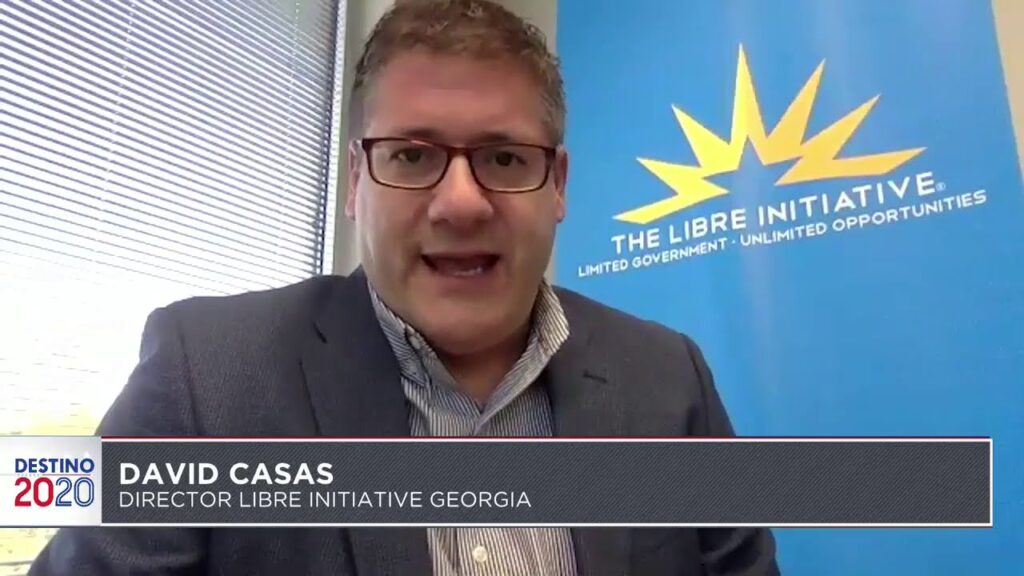
In an AJC op-ed, Casas pushes multiple amnesty bills and supports ‘Americans last” legislation in Georgia
Updated with photo: Georgia state Republican Party Chairman David Shafer assisting The LIBRE Initiative – Georgia
Former Republican state Rep David Casas is now the director of grassroots operations for the pro-amnesty, leftist Libre Initiative Georgia (The Freedom Initiative). He has an anti-enforcement column (“Opinion: Georgia must explore immigration reform to keep workforce, economy growing) running at the increasingly pretense free, liberal AJC. It’s a must read.

Don’t look for “the other side” in the newspaper. There was a time when the liberal AJC opinion page editor would run an occasional pro-enforcement piece from this writer but now he won’t even run a 165 word letter to the editor. Because too much information.
Related: The AJC is on record promoting open borders and the free flow of labor
The Casas column also runs at the same time as a very similar op-ed in the liberal AJC from the Georgia Chamber of Commerce and Georgia’s Hispanic Chamber of Commerce. It should also be noted here that Casas and the ‘Libre Initiative Georgia’ organized lobbying efforts for the failed SB 601 that would have allowed state payments to illegal aliens for private school tuition while illegal alien parents would have been in charge of disbursement of those taxpayer dollars.
Republican Casas’ 618-word opinion column promotes not one, but three amnesty bills now pending in congress while two million-ish illegal aliens have come over U.S. borders since Pres. Biden was sworn in.
He goes further and tosses out a Hail Mary promo for Georgia’s HB 932 which is as dead as Pancho Villa unless some Kamikaze GOP lawmaker tries to add its language and intent to a live bill before the end of the 2022 legislative session. We hope that happens for the educational value of seeing who’s who on floor votes – and to see if Gov. Kemp would allow it to become state law.
Readers may remember that HB 932 is the bill from outgoing Republican Woodstock Rep Wes Cantrell that would have altered state law that says all new Georgia residents must live here for a year before they are eligible for the much lower instate tuition rates in our public colleges. The bill, now endorsed by David Casas, would eliminate the waiting period for refugees, certain Afghan citizens and foreign nationals who have been awarded a “Special Immigrant Visa.” That group would be able to access the lower tuition rates the day they arrive in Georgia. Americans who relocate here from other states would still be required to pay the higher rate if they attend college during their first year of residence.
Related: For academic year 2020-2021, the average tuition & fees for Colleges in Georgia was $4,739 for in-state and $17,008 for out-of-state.

Readers may also remember that Republican House Speaker Pro Tem Jan Jones was a signer on HB 932 but scratched her name off after we made the contents of the legislation public.

Cantrell, with cosponsors Republican Rep. Kasey Carpenter and an assortment of Democrats was put up to this little caper with the joint effort and partnership between the increasingly powerful refugee industry and the real power at the Gold Dome, the Georgia Chamber of Commerce.
But wait, there’s more!
Casas also advances the “logic” of legislation like Carpenter’s HB 120 to grant public college instate tuition to illegal aliens living in Georgia while charging U.S. citizens and legal immigrants who come to Georgia schools from other states pay three times as much.
Conservatives should talk about it.
Two things to insure there is no confusion:
David Casas and the Libre Initiative of Georgia are pushing for Americans to have less freedom and fewer rights in Georgia than foreigners.
I will be happy to respectfully debate this fact and the ‘Americans last’ agenda Casas is promoting in the liberal AJC with him or friend of the Libre Initiative Georgia, Republican Chairman David Shafer if any Georgia “conservative” groups want to arrange that situation. We predict that will never happen.
Casas’ guest column in the liberal AJC a week before the end of the session illustrates the endless determination of dollar-first, bipartisan Establishment to do a repeat of the failed amnesty of 1986 and to speed once bright red Georgia further downhill towards becoming the California of the Southeast.
To be clear: They will never stop and yes, it really is all about the money.
I am wondering – am I the last one to know about David Casas’ transformation?
#
By D.A. King

“Many Georgians – including here at our house, want to see how many Republican votes HB 932 would get in the full House”
A version of the below essay originally posted on the subscription website Insider Advantage , Feb 28, 2022
by Inger Eberhart
Many thanks to Insider Advantage for the excellent, detailed coverage of last year’s House Special Committee on ‘Innovative Ways to Maximize Global Talent’ from D.A. King. With Rep Wes Cantrell as chairman, one of the bills created from those one-sided committee hearings, HB 932, is now pending in the House committee system at the state Capitol. Pro-enforcement, conservative voters should pay attention to it and watch to see if Higher Education committee Chairman Chuck Martin allows a vote.

In the interest of shining a light on “who’s who” in the Republican House caucus, I write urging Chairman Martin to hold a vote on that Rep Wes Cantrell-sponsored measure as soon as possible. As a proud conservative voter, I also urge the House Rules committee to pass HB 932 out to the floor for maximum exposure on recorded votes.
HB 932 comes from the partnership between business and the massive, fast-growing refugee resettlement industry here in Georgia, largely led by Darlene Lynch. It’s called “BIG.” and is well worth reader’s time to explore. Lynch organized and supervised the special committee that produced the bill. Cantrell was the sponsor of the Resolution that created that committee. The Resolution passed unanimously in the House last year.

Lynch also apparently organized the fourteen or so mostly foreign-born leftists who testified in favor of HB 932 passing out of the House Higher Education Committee last Wednesday. Armed with this knowledge, curious readers may want to also see the Georgia Chamber’s page on its “Global Talent Initiative” to get a larger view of the vast network aimed at expanding cheaper, foreign labor in Georgia.
For a close up exposure to the liberal logic used to justify putting refugees over Americans in Georgia, an easy-to-read transcript and a link to the video of the Higher Ed committee hearing is available on the Dustin Inman Society website.
Along with his cosponsors, Cantrell has put language into HB 932 pushed by the above-mentioned Darlene Lynch & Co. that changes the state law on residence- waiting periods for people who move to Georgia regarding instate tuition in our taxpayer-funded colleges. Currently all new residents must live here for a year to be eligible for the much lower instate college tuition rate.
Related: For academic year 2020-2021, the average tuition & fees for Colleges in Georgia is $4,739 for in-state and $17,008 for out-of-state.
Lynch and Cantrell are pushing for that waiting period to be eliminated for refugees, some Afghan citizens and immigrants who say they helped the U.S. in their home nations. The change would not affect Americans who move here from any other state. They would still have to wait a year to access the lower tuition rate.

Democrats are pushing the bill as “pro-immigrant” and at least some Republicans go out of their way to praise Cantrell and the bill.
In the recent hearing on HB 932 several Democrats vocalized their enthusiastic support for making Americans pay three times more public college tuition than an Afghan refugee in Georgia. Macon Republican Rep Dale Washburn joined in and was effusive in his admiration for the legislation with
“uh, thank you, Mr. Chairman. I wanna make the praise for this bill bipartisan. Uh, uh, thank you for bringing it. It’s an excellent bill, and certainly in my mind, it is the right thing to do for these people. And the added benefit is, is not only the right thing, it’s a good thing for Georgia and it makes sense in many ways.”

“Yeah. Well, it’s an excellent bill and uh, I hope we get a chance to vote yes on it, uh, soon.”
The liberal AJC reported on HB 932 but omitted the fact that Americans would not get the same financial break given to the foreigners.
Speaker Pro-Tem Jan Jones was originally a cosponsor on HB 932 until she removed her name from the bill after it gathered some attention created by the Dustin Inman Society.
While young Americans of all descriptions struggle to pay down student college debt and Georgia citizens watch inflation decimate their budgets, new refugees are supported largely by our tax dollars. Many Georgians – including here at our house – want to see how many Republican votes HB 932 would get in the full House.
So, I repeat my plea to House Higher Education Chairman Chuck Martin: from a Black conservative Georgia voter; Please grant Rep Dale Washburn’s wish and hold a committee vote on HB 932 as soon as possible.
We need more insight on “who’s who.”
Inger Eberhart is a board member and Communications Director, the Dustin Inman Society

Contact info for the Georgia delegation in Washington DC here. Just click on their name.